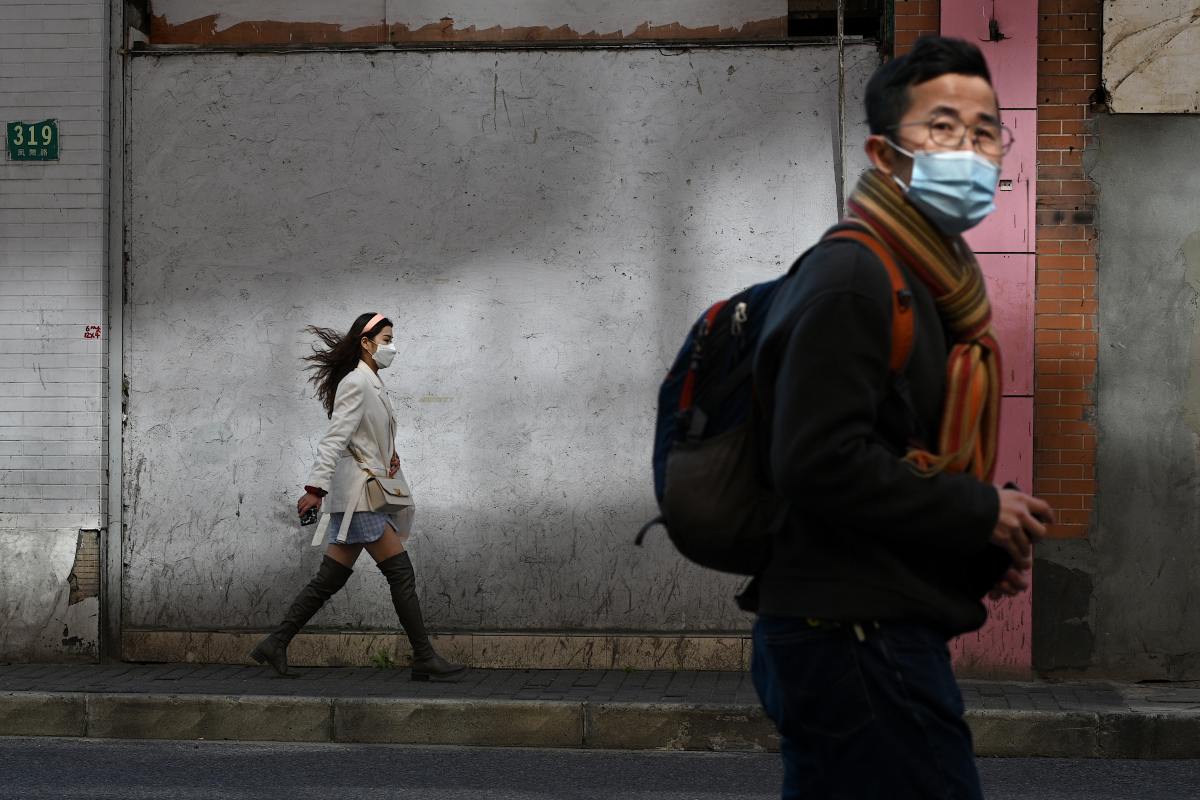India and China
The meeting between External Affairs Minister S. Jaishankar and Chinese Foreign Minister Wang Yi at the G-20 foreign ministers’
The Managing Director of IMF said it was “too early” to assess the full impact of the epidemic but acknowledged that it had already affected sectors such as tourism and transportation.

People wearing protective face masks walk along a street in Shanghai on February 17, 2020. The death toll from China's new coronavirus epidemic jumped to 1,770 after 105 more people died, the National Health Commission said February 17. (Photo by Noel Celis / AFP)
With more than 1700 people dead in China, the IMF head on Sunday said, the coronavirus epidemic could damage global economic growth this year, but a sharp and rapid economic rebound could follow.
“There may be a cut that we are still hoping would be in the 0.1-0.2 percentage space,” the managing director of the International Monetary Fund, Kristalina Georgieva, told the Global Women’s Forum in Dubai. She said the full impact of the spreading disease that has already killed more than 1,700 people would depend on how quickly it was contained.
Advertisement
Today I met with Director-General of the @WHO @DrTedros to discuss #coronavirus. I extend my sympathies to all those affected. #China is making a strong effort to contain the epidemic. We stand ready to help in any way we can.
Advertisement
— Kristalina Georgieva (@KGeorgieva) February 15, 2020
“I advise everybody not to jump to premature conclusions. There is still a great deal of uncertainty. We operate with scenarios, not yet with projections, ask me in 10 days,” Georgieva said.
In its January update to the World Economic Outlook, the IMF lowered the global economic growth forecast in 2020 by a 0.1 percentage point to 3.3 percent, following a 2.9 percent growth the previous year, the lowest in a decade. Georgieva said it was “too early” to assess the full impact of the epidemic but acknowledged that it had already affected sectors such as tourism and transportation.
“It is too early to say because we don’t yet quite know what is the nature of this virus. We don’t know how quickly China will be able to contain it. We don’t know whether it will spread to the rest of the world,” she said.
If the disease is “contained rapidly, there can be a sharp drop and a very rapid rebound”, in what is known as the V-shaped impact, she said. Compared to the impact of the Severe Acute Respiratory Syndrome (SARS) in 2002, she said China’s economy then made up just 8.0 percent of the global economy. Now, that figure is 19 percent. She said the trade agreement between the United States and China, the world’s first and second economies, had reduced the disease’s impact on the global economy.
But the world should be concerned “about sluggish growth” impacted by uncertainty, said the IMF chief. “We are now stuck with low productivity growth, low economic growth, low-interest rates, and low inflation,” she told the Dubai forum, also attended by US President Donald Trump’s daughter Ivanka and former British prime minister Theresa May.
Advertisement